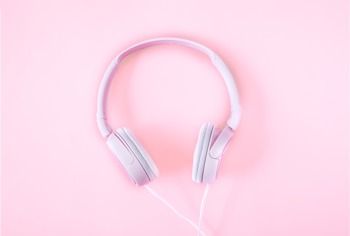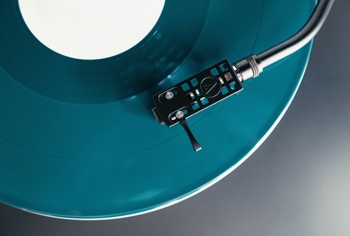The latest in a regular series of Insight Sessions was held yesterday (27/6), unveiling new music research by Mark Mulligan of MiDiA Research – Generation Z: Meet the Young Millennials.
The report for BPI/ERA explores the music consumption habits and social media behaviour of today’s young Millennials (aged up to 19) and how their engagement across streaming and video platforms and social media and messaging apps, including Instagram, Snapchat and Musical.ly, is shaping longer-term trends.
YouTube still dominates in the social media space
The research finds that for today’s tweens and teenagers YouTube is a pervasive platform – not only for new music and content and access to influential YouTubers like Zoella, but for social engagement also. YouTube plays a key role as “a video destination, music app, social platform and educational resource rolled into one”.
Messaging apps have replaces social networks
Messaging apps including Snapchat and Instagram are becoming increasingly important, replacing social networks for Generation Z and enabling them to act on their impulse to “live in the moment” and “narrate their lives”. As such they help build engagement around music and artist profiles.
More recent apps like Musical.ly and Dubsmash – video social network apps for video creation and messaging – are also growing in popularity. This is in part due to a rate of app innovation that is accelerating thanks to the “Millennial feedback loop” of older millennials shaping app experiences for the younger Gen Z.
But Spotify dominates music space and drives discovery
The research additionally shows that, as teenagers develop as music consumers, they are likely to be drawn to audio streaming services such as Spotify, Deezer and Apple Music. For those aged 16-19 Spotify is overtaking YouTube as the main music app, with 53 per cent weekly user penetration compared to 47 per cent for YouTube.
This helps to underline another finding highlighted in the report from previous MiDiA research showing that younger consumers (16-19 years: 67%) are more prepared to pay for music than other age groups (56%).
Streaming is, however, also transforming UK Teens’ relationship with music, with Millennials increasingly accessing individual tracks or playlists rather than engaging with artists or albums.
Geoff Taylor, Chief Executive BPI & BRIT Awards, said: “If we are going to prepare for the future of music, we need to better understand Generation Z and the influences that shape their engagement with music. These young digital natives are not only important as a key segment of the market, but the way they interact with music helps to unveil trends that will become more widespread among music fans over time.”
Kim Bayley, Chief Executive ERA, said: “It’s not news that entertainment is changing, but none of us should underestimate the achievement of the streaming revolution. Not only has it helped stop piracy in its tracks, it has created the first real growth in the music industry in more than a decade and has done so with an unbeatable consumer proposition: 24/7 access to virtually all the music in the world. In the fast-paced digital world, however, nothing is forever and it is vital to stay close to emerging generations of music fans, many of whom were not even born at the dawn of the MP3 age.”
Generation Z: Meet the Young Millennials – Summary of Key findings:
- 85% of 16-19 year olds say that music is an important part of their life.
- Authenticity, relevance, shareability and context are key to Gen Z.
- YouTube is the most pervasive entertainment platform for Gen Z, peaking at 94% monthly penetration among 16-19 year olds.
- However, for these 16-19 year olds, as interest in music develops, Spotify is overtaking YouTube as the main music app, with 53% weekly user penetration compared to 47% for YouTube.
- Music is the most widely watched content type among 12-15 year olds on YouTube, with YouTubers such as Zoella (11.8m subscribers) and KSI (16.1m) becoming the new pop stars for Gen Z.
- UK teens (16-19 years) are more willing to pay for music. 67% consider it to be worth paying for regularly compared to 56% of overall consumers.
- A third of 8-11 year olds in the UK use Snapchat, rising to 67% for 16-19 year olds, while 63% of 16-19 year olds use Instagram.
- Messaging apps like Snapchat and Instagram are replacing social networks for Gen Z.
Among 16-19 year olds YouTube and social media unsurprisingly dominate, with much higher penetration rates than the overall population. - Streaming is transforming Gen Z’s relationship with music: 74% of all 16-19 year olds say they are mainly listening to single tracks and playlists instead of albums.
- 71% of 16-19 year olds listen to music radio on an at least monthly basis, just 3 percentage points above the all-ages average.
The BPI/ERA Insight Session, which was chaired by Music Ally’s Paul Brindley and was attended by over 90 industry guests, also featured a video segment produced by digital media platform SuperAwesome, presenting the views of young Gen Z Millennials. This was followed by the presentation of two of five marketing case studies included in the report that explain how brands are connecting with Generation Z: Deezer’s Grime Channel and Netflix/GRM Daily’s #TheGhettsDown campaign. The event concluded with a discussion with panellist from Deezer, SuperAwesome, Atlantic Records UK, GRM Daily and MiDiA Research.
Previous Insight Sessions have explored In-Car Tech and Entertainment, Blockchain, VR and AI & Music.
If we are going to prepare for the future of music, we need to better understand Generation Z and the influences that shape their engagement with music. These young digital natives are not only important as a key segment of the market, but the way they interact with music helps to unveil trends that will become more widespread among music fans over time.




